How mattress warranties work – everything you need to know
I asked a mattress salesman to explain how mattress warranties work, what they do and don't cover and how to file a claim if your bed breaks
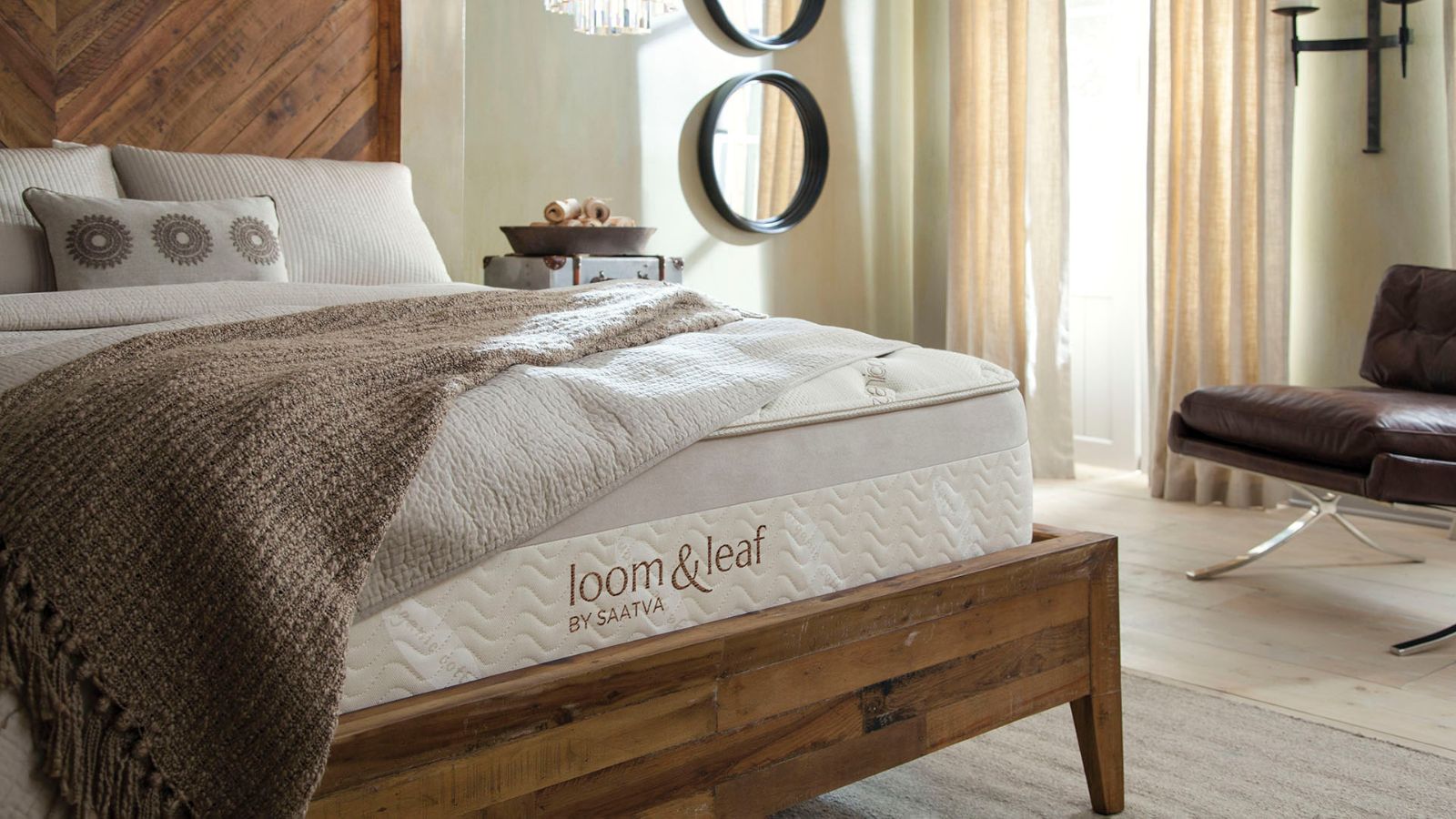

A mattress is a major investment. When you're spending that much money on a brand-new bed, you want to know that you can protect your purchase from defects and deterioration. A good mattress warranty should give you that peace of mind.
The length and terms of your mattress warranty will vary from product to product, as well as between brands. Before you buy a bed, you need to work out what your warranty does and doesn't cover and what you should and shouldn't do to prevent voiding your warranty.
As H&G's resident sleep writer, I lead a team of expert testers in the search to find the world's best mattress. We assess each mattress for comfort, cooling, and support before we consider the more practical aspects of buying a bed, from the length of the sleep trial to the terms of the mattress warranty. This article should tell you everything you need to know about the different types of mattress warranties and what to do if you need to file a claim.
Mattress warranties – what you need to know
Before we begin, it always helps to define our terms. I asked mattress salesman Andy Bloom to tell us more about mattress warranties and what they mean for you, the consumer.
What is a mattress warranty?
A mattress warranty is a written guarantee, extended by the manufacturer to the purchaser, to repair or replace your mattress if necessary within a specified period of time.
In the age of online mattress shopping, getting a good mattress warranty is more important than ever. It protects you against material defects that you can't see from the product listing and that you might not even feel in a mattress showroom.
The length of the mattress warranty and the extent of its coverage will vary from brand to brand. Some warranties last five years, whereas others last 20; some warranties only cover particular manufacturing defects, while others cover all sorts of mattress flaws.
'As a mattress retailer, we get questions about mattress warranties all the time,' says Andy Bloom, owner of Home Mattress Center. 'The specific terms and conditions of mattress warranties can vary between mattress manufacturers, but there are basic types.' Let's break them down.
- Full replacement warranty: 'This type of warranty covers the entire cost of replacing a defective mattress with a new one,' says Andy. 'It typically includes defects in materials or workmanship.'
- Prorated warranty: 'This type of warranty provides coverage for a specified period of time, after which the value of the warranty decreases,' Andy explains. 'If a defect arises within the initial coverage period, the manufacturer will typically replace or repair the mattress at no cost. However, as the warranty progresses, you may be responsible for a portion of the cost.'
- Limited warranty: This type of warranty offers the least protection. Andy explains that 'a limited warranty covers only specific components or issues within the mattress, such as broken coils or foam deterioration.' It's worth checking the exact terms and conditions of your warranty to work out what's in and what's out.
- Extended warranty: This type of warranty offers the most comprehensive protection. 'A few manufacturers offer the option to purchase an extended warranty, which extends the coverage period beyond the standard warranty duration,' says Andy. 'This provides additional protection and peace of mind'.
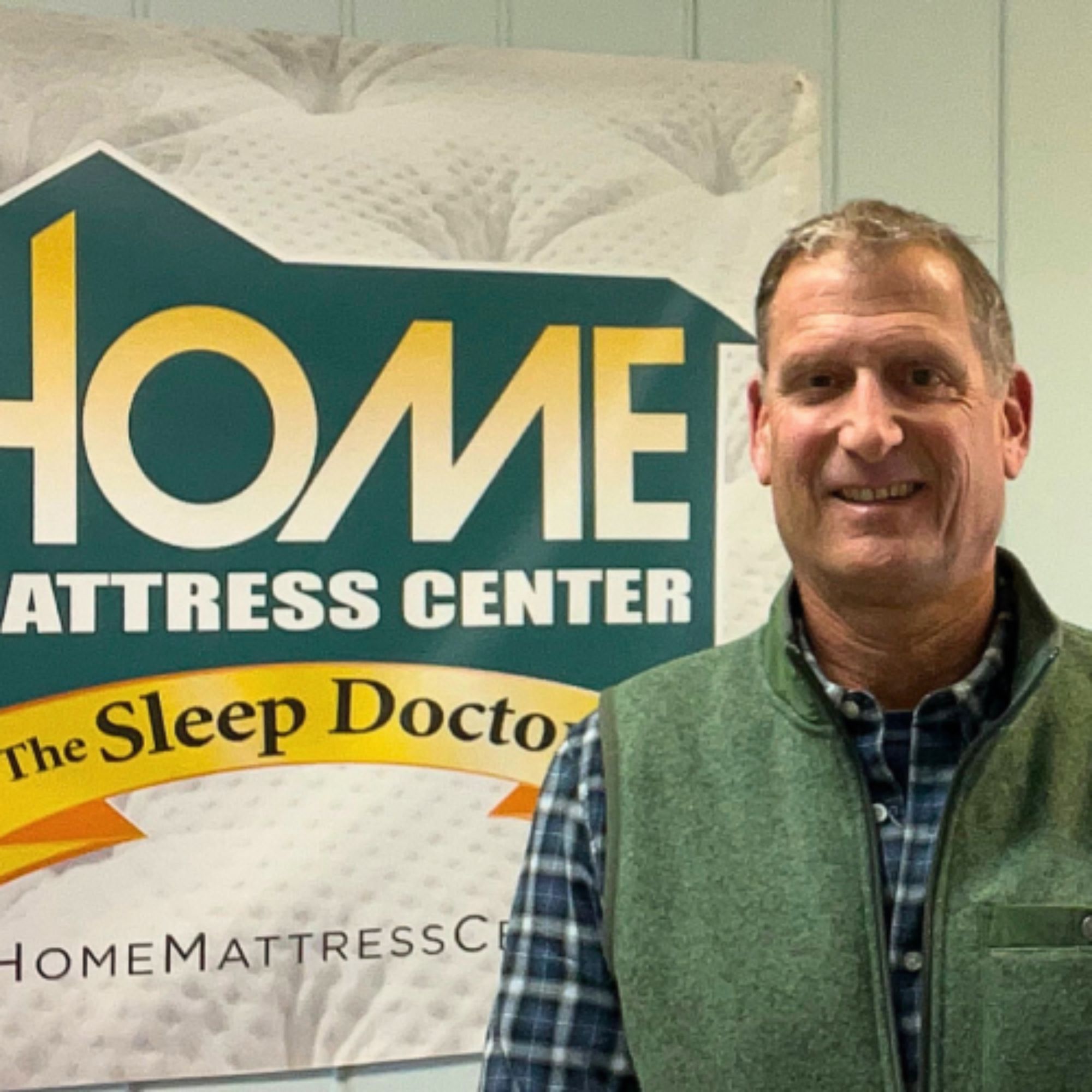
Along with his wife, Katie, Andy owns and operates the Home Mattress Center store and showroom. Andy has sold thousands of beds over the last 30 years in the mattress industry.
What does a mattress warranty cover?
The exact details of your mattress warranty will vary from brand to brand, but typically include defects in materials or workmanship, such as:
- Significant, premature sagging: over the years, any mattress will start to sag under the pressure of nightly use. Still, if your mattress shows signs of excessive sagging within the first few years of use, then you may be entitled to compensation.
- Broken coils: if the coils in your bed break, you'll know about it. You'll hear them squeak and creak as you toss and turn, and you might feel them digging into your side as you start to sleep.
- Faulty stitching: this sort of defect is a manufacturing error, which is covered by your average mattress warranty.
From the shopper's point of view, the best mattress warranties are the most comprehensive. You're looking for a warranty that covers all the major defects in material and manufacture to last as long as your mattress does.
Below, I've picked out a few of my favorite beds that come with extensive mattress warranties. Each mattress is tried and tested by an H&G sleep expert for comfort; support; breathability; motion isolation; edge support; and the all-important cost.
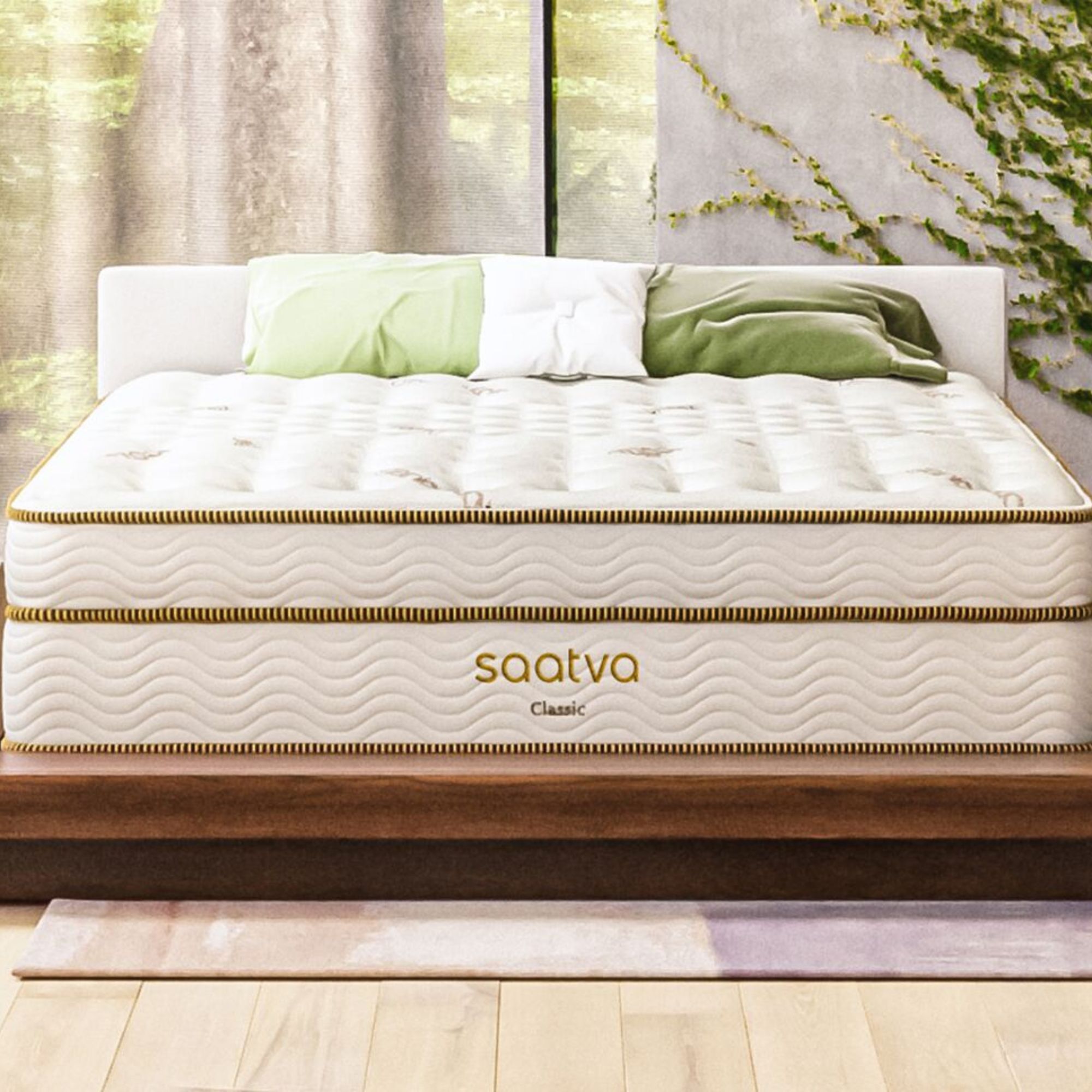
Saatva is one of the best places to buy a mattress. Their beds come with 365-night mattress sleep trials for in-depth testing and lifetime mattress warranties to protect against all the major defects in materials and workmanship.
You can find more detail in our Saatva Classic Mattress review.
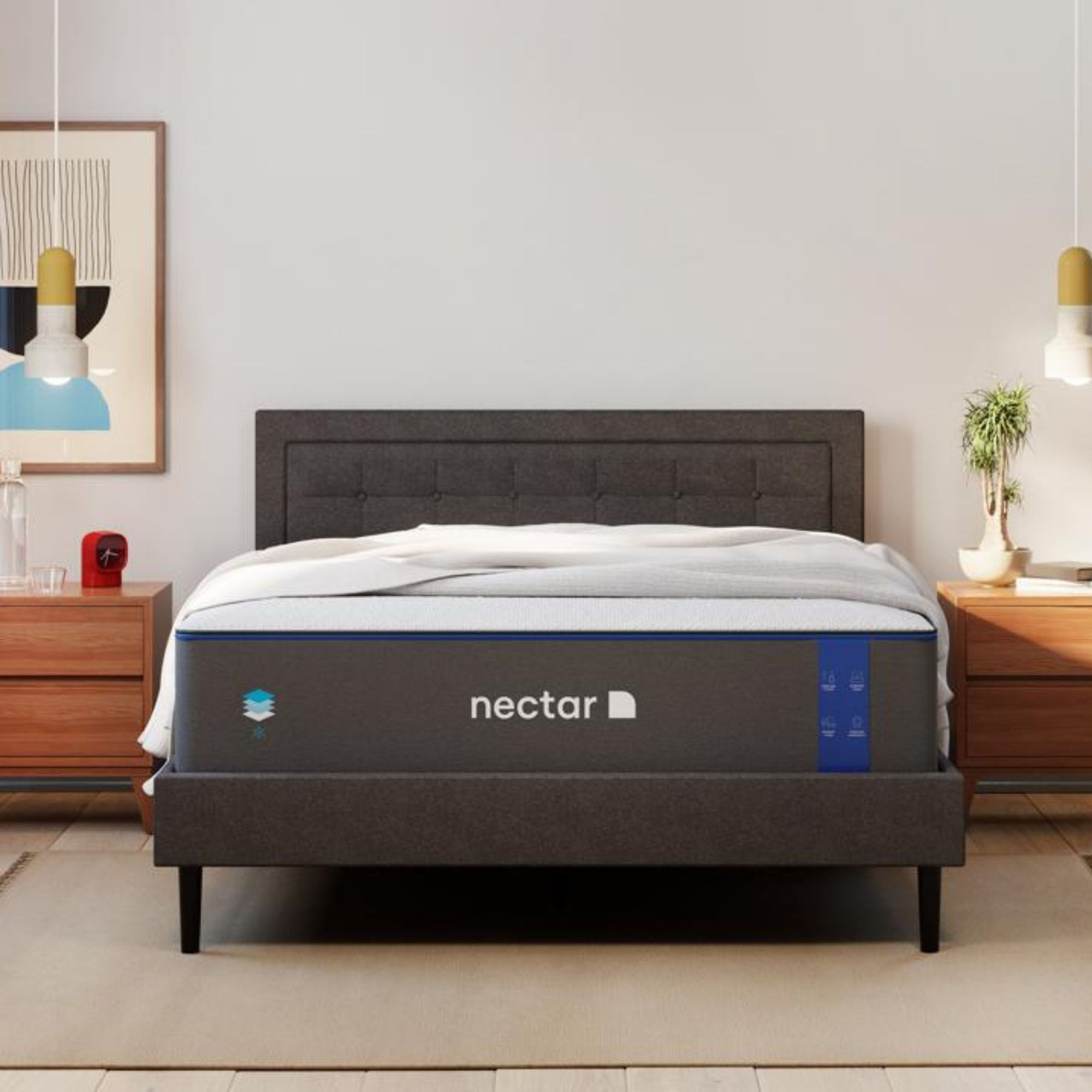
One of our expert testers, Casey, suffers from fibromyalgia. She finally got a good night's sleep on the Nectar Memory Foam Mattress, which molds to the shape of her body and bears her weight to ease her aches and pains. Thanks to Nectar's lifetime warranty, Casey can protect her sleep-saving mattress for long-term use.
You can find more detail in our Nectar Memory Foam Mattress review.
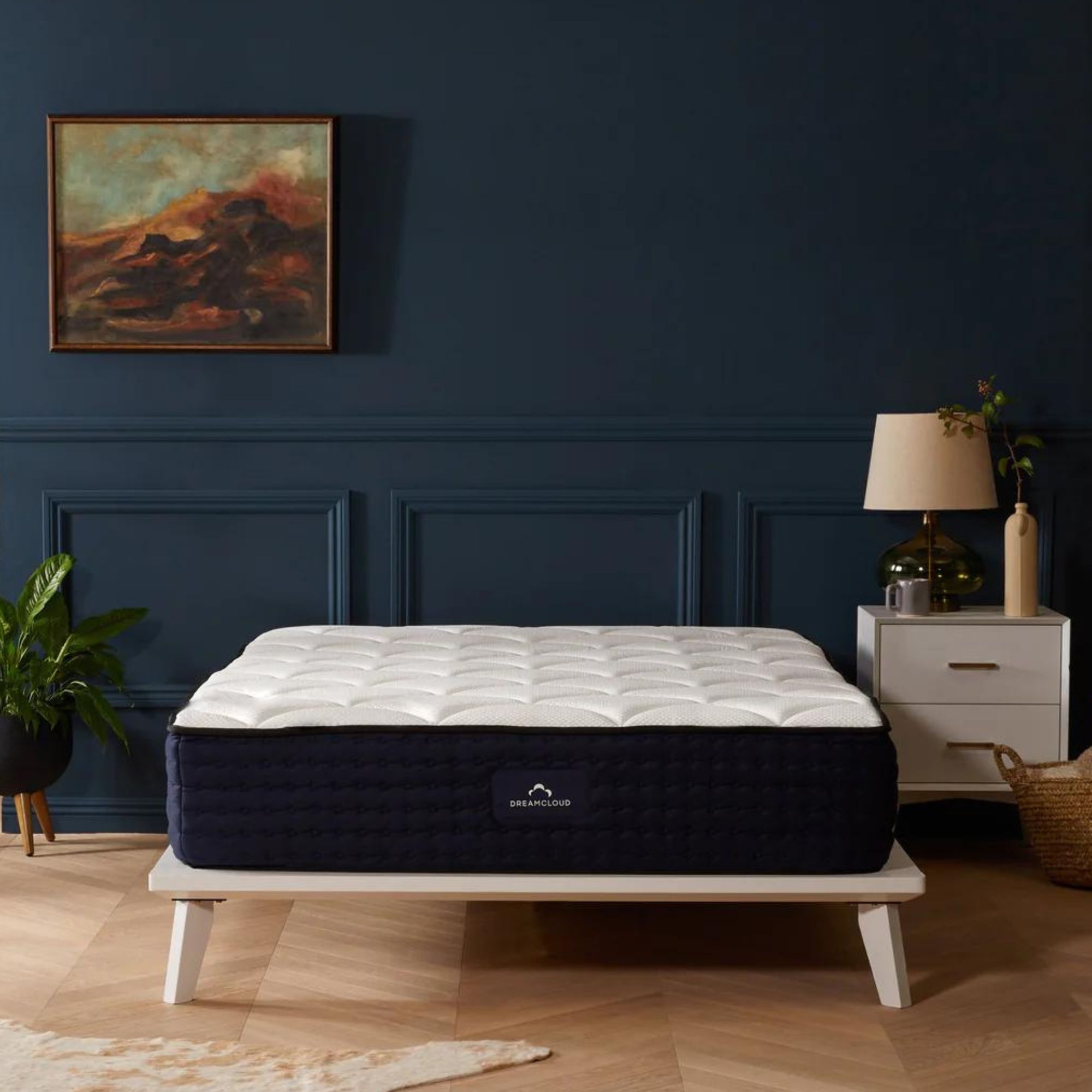
Another of our expert testers, Camryn, gave this hybrid mattress top scores across the board for comfort, cooling, and cost. The DreamCloud Luxury Hybrid Mattress comes with a limited lifetime mattress warranty, as long as you use an appropriate base and mattress cover to protect your bed.
You can find more detail in our DreamCloud Luxury Hybrid Mattress review.
What does a mattress warranty not cover?
A mattress warranty does not cover any damage done to a mattress through regular, normal use. Any damage incurred through the owner's negligence is also not covered by a mattress warranty. In practice, that might look like:
- Regular mattress sagging: if your mattress starts to accrue indents and impressions over the years, this is considered normal wear and tear, so it is not covered by a mattress warranty.
- Spills, stains, and other physical flaws caused by the owner: your average mattress warranty only covers defects caused by the manufacturer.
Also, if you buy a bed and decide that it doesn't meet your sleep needs, any replacement or exchange you might make will not be covered by the original mattress warranty.
Mattress warranty FAQs
What can void a mattress warranty?
These are the most common mistakes shoppers make to accidentally void their mattress warranty.
- Not following care instructions: 'If you fail to follow the care instructions issued by the manufacturer, and you don't use a proper foundation or a mattress protector, then your warranty may be voided,' says Andy.
- Removal of tags: the law labels and care tags attached to your mattress are important proof of its authenticity.
- Inappropriate use: according to Andy, this is a catch-all term. 'If you use the mattress for any purpose other than its intended use (sleeping), then the warranty might be voided.'
- Selling or buying a mattress second-hand: your average mattress warranty only applies to the original purchaser of the mattress. If you buy a mattress second-hand, and notice that it starts to sag, then you won't be entitled to compensation.
How can I file a warranty claim?
First, gather all the relevant information to prove your purchase and your problem. This includes your original receipt, your warranty card, and photographs that clearly show the defects in your mattress.
Next, contact the manufacturer or the store where you bought the mattress. They'll want to hear more about your problems with the mattress, so compile a list of any relevant details or evidence.
Once your claim is verified and approved, the manufacturer should offer some sort of solution. This might involve repairs, replacement, or refund, depending on the terms of the warranty.
Final thoughts
To meet the terms and conditions of your warranty, you need to take good care of your mattress. I suggest you invest in the best mattress protector to safeguard your bed from sweat, spills, and stains. It's all part of proper use.
Sign up to the Homes & Gardens newsletter
Design expertise in your inbox – from inspiring decorating ideas and beautiful celebrity homes to practical gardening advice and shopping round-ups.

Emilia is our resident sleep writer. She spends her days tracking down the lowest prices on the best mattresses and bedding and spends her nights testing them out from the comfort of her own home. Emilia leads a team of testers across America to find the best mattress for every sleep style, body type, and budget.
Emilia's quest to learn how to sleep better takes her all around the world, from the 3Z mattress factory in Glendale, Arizona to the Hästens headquarters in Köping, Sweden. She's interviewed luxury bedding designers at Shleep and Pure Parima, as well as the Design Manager at IKEA. Before she joined Homes & Gardens, Emilia studied English at the University of Oxford.
-
 This simple marble hack elevates my budget-friendly wooden kitchen countertops and prevents the dreaded water damage for way less than you’d think
This simple marble hack elevates my budget-friendly wooden kitchen countertops and prevents the dreaded water damage for way less than you’d thinkThis design trick looks expensive, solves a problem, and was the easiest decision I made during my kitchen reno
By Charlotte Olby Published
-
 Emily Blunt gifted Cillian Murphy this $545 pillow – she's 'obsessed' with these luxury pillows, and frankly, so are we
Emily Blunt gifted Cillian Murphy this $545 pillow – she's 'obsessed' with these luxury pillows, and frankly, so are weThe Oppenheimer stars sleep on this ultra-luxe goose down pillow – here's why we love it – plus our affordable alternatives from $35
By Sophie Edwards Published
-
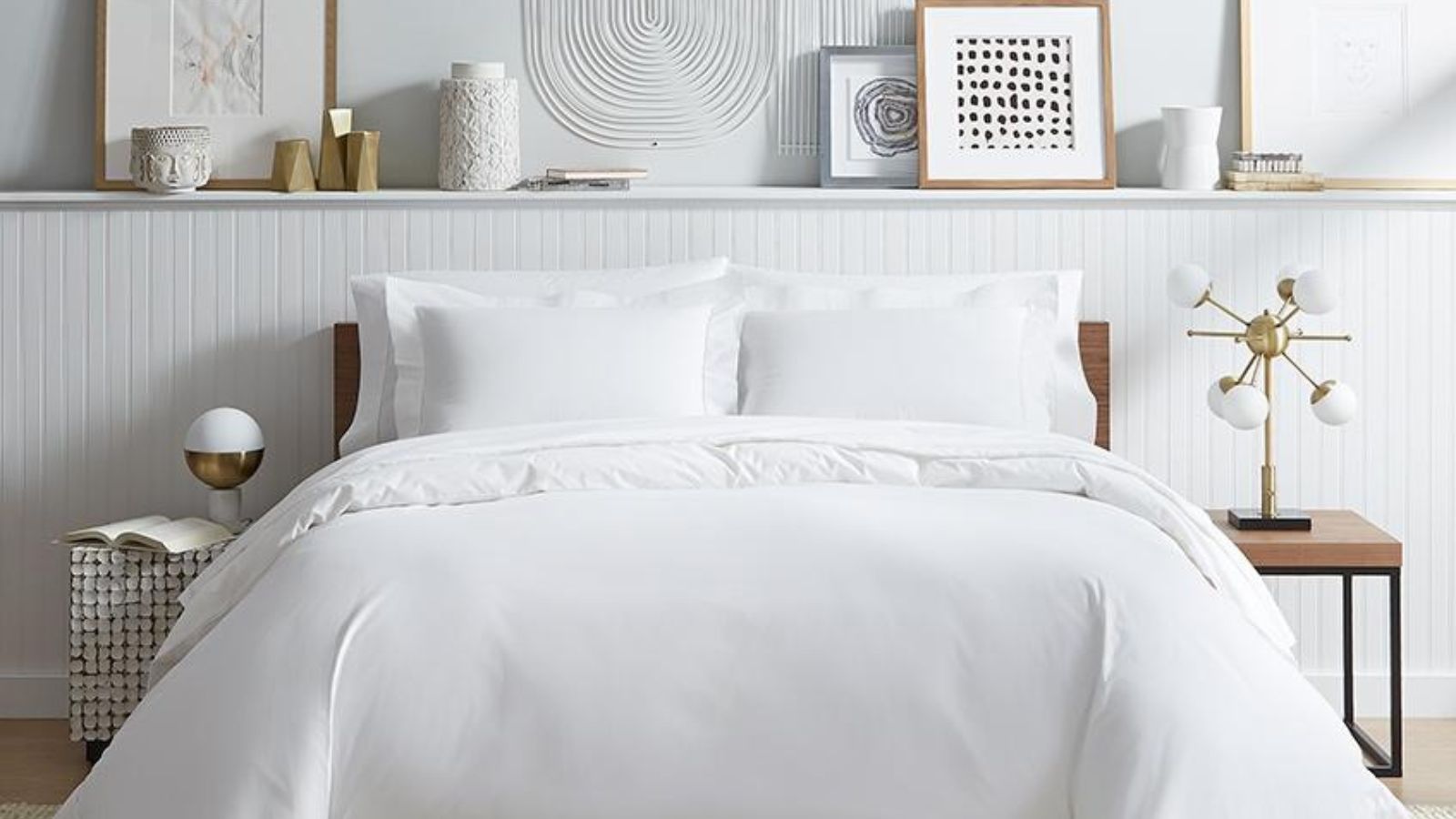 How we test comforters − our expert review process explained
How we test comforters − our expert review process explainedHere's everything you need to know about how we test comforters for comfort, cooling, ease of care, and value for money
By Emilia Hitching Published
-
 Sleep trends to try in 2025 – from sleep divorce to sleep retreats and everything in between
Sleep trends to try in 2025 – from sleep divorce to sleep retreats and everything in betweenI asked an expert panel of product designers, medical professionals, and sleep scientists whether popular and emerging sleep trends really work
By Emilia Hitching Last updated
-
 What is green sleep? Experts explain this better sleep trend
What is green sleep? Experts explain this better sleep trendOur sleep editor tried the 'green sleep' trend, here's everything you need to know, including what it means and whether it works
By Louise Oliphant Published
-
 I'm a sleep editor and The 'Emma Shleep experience' changed the way I rest
I'm a sleep editor and The 'Emma Shleep experience' changed the way I restAfter a night of sleeping under the stars with Emma the sleep company, I decided to switch up my sleep routine – here's how I get my best sleep yet
By Louise Oliphant Published
-
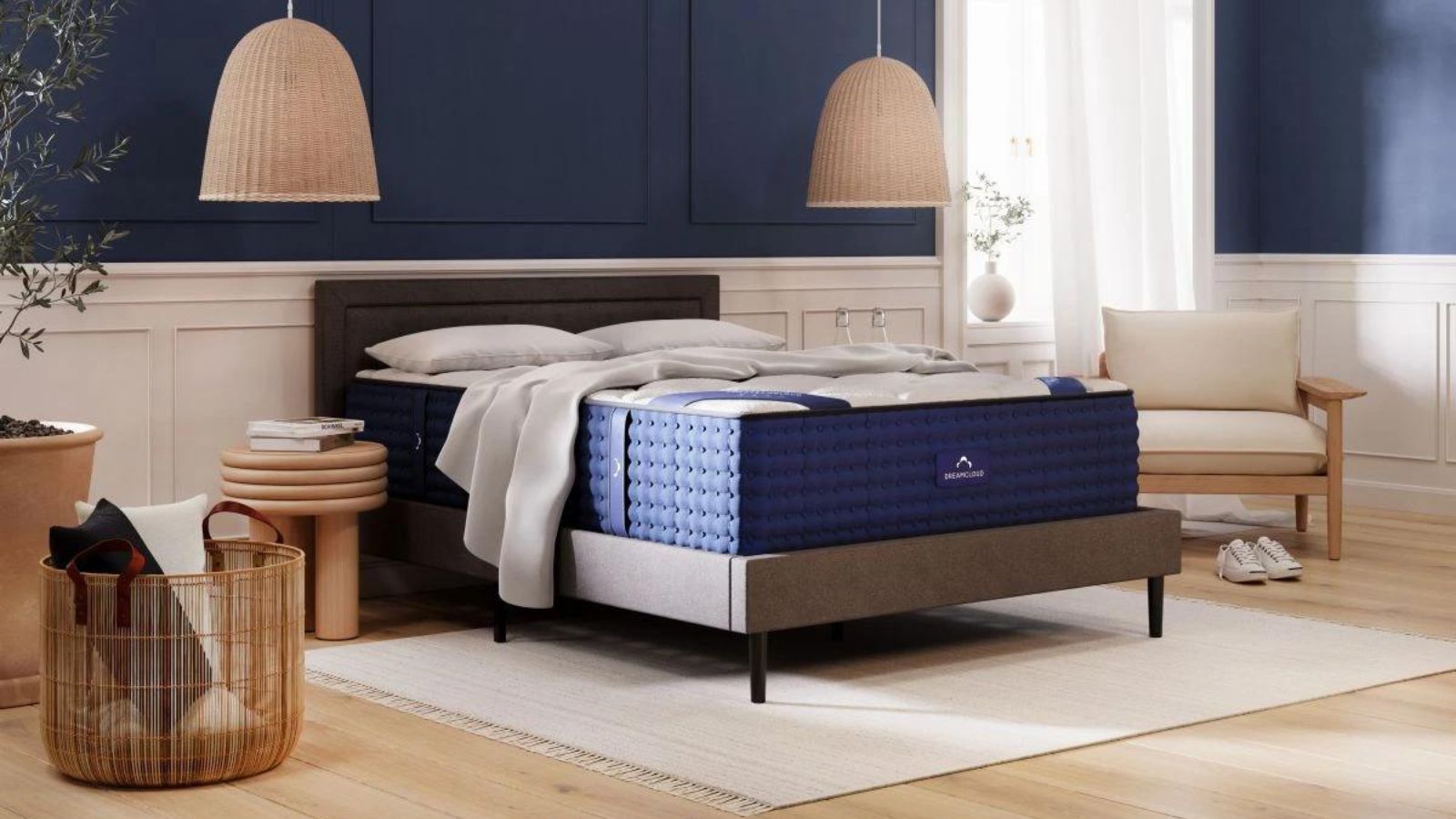 Hybrid vs memory foam − what's the difference and which is best for you?
Hybrid vs memory foam − what's the difference and which is best for you?I set hybrid vs memory foam mattresses head to head to help you decide which mattress type suits your sleep style
By Emilia Hitching Last updated
-
 How to test a mattress − at home or in store
How to test a mattress − at home or in storeI asked mattress manufacturers and certified sleep experts how to test a mattress for the best night's sleep
By Emilia Hitching Last updated
-
 How to break in a mattress − expert tips from mattress testers
How to break in a mattress − expert tips from mattress testersI spoke to mattress manufacturers and sleep scientists to learn how to break in a mattress for better sleep on a time crunch
By Emilia Hitching Last updated
-
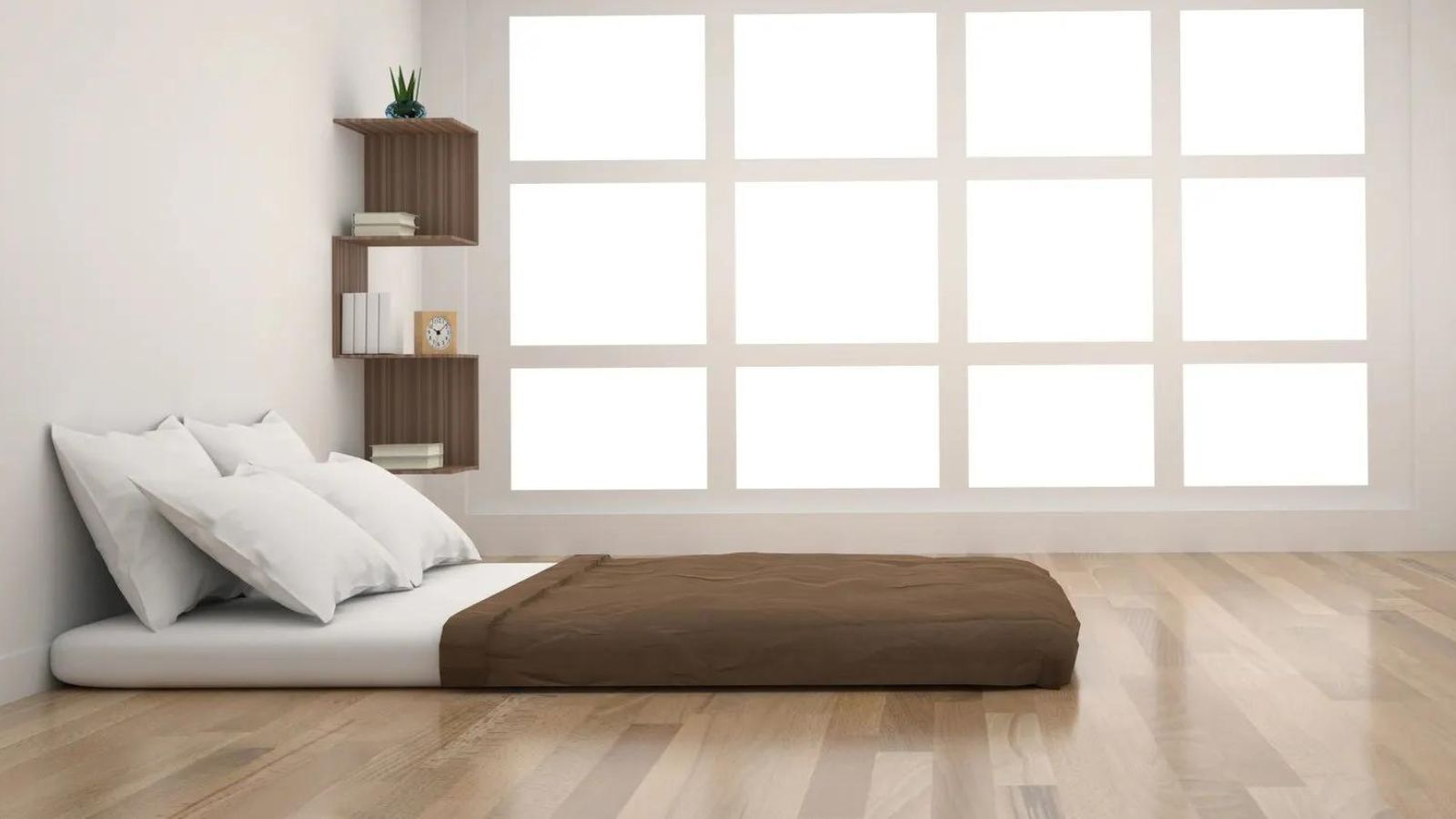 Should you put a mattress directly on the floor? Experts outline the pros and cons
Should you put a mattress directly on the floor? Experts outline the pros and consI spoke to mattress manufacturers and sleep scientists to find out whether it's ever a good idea to put a mattress directly on the floor
By Emilia Hitching Last updated